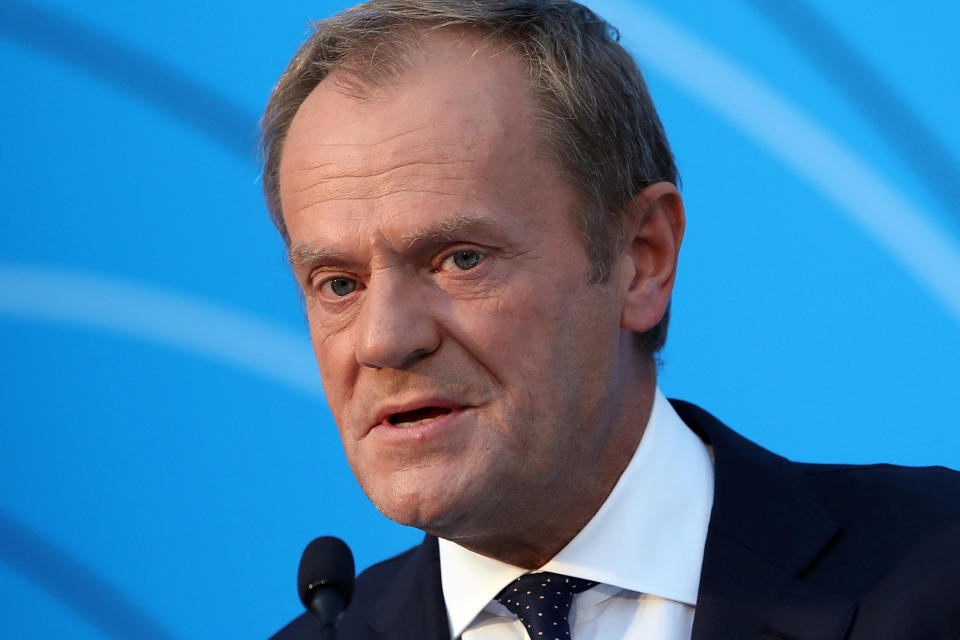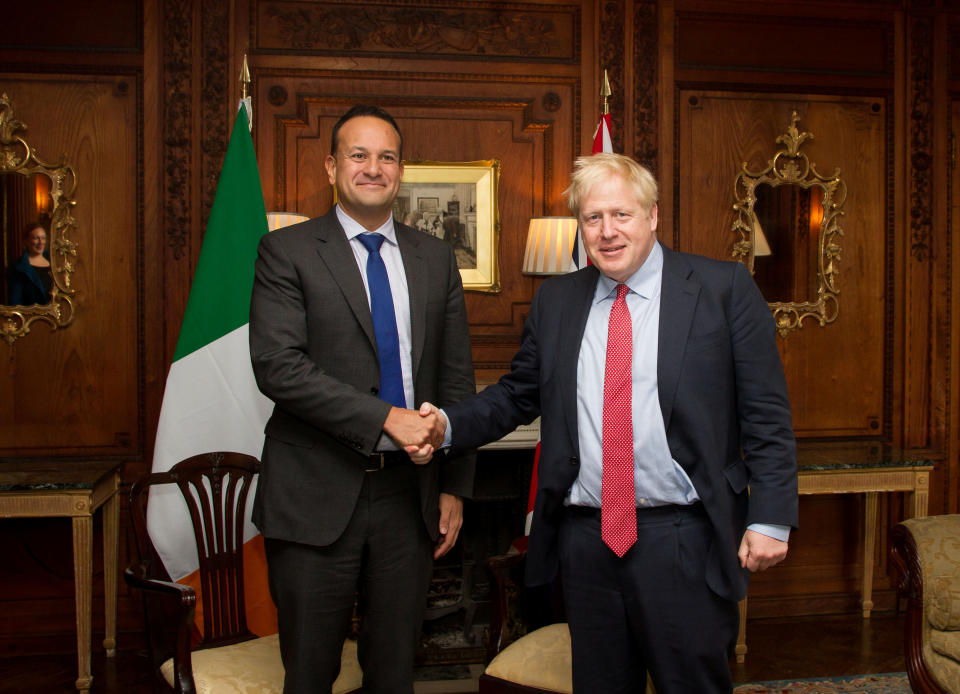Brexit talks enter new intensive phase in boost for prospects of a deal

Brexit negotiations will enter a new, accelerated phase of secretive talks in a decision that is being seen as a boost for the prospects of a deal.
The EU agreed to move into the intensive “tunnel” phase after a “constructive meeting” between chief negotiator Michel Barnier and Brexit Secretary Stephen Barclay in Brussels on Friday.
Boris Johnson told reporters on Friday afternoon: “I had a good conversation with the Irish Taoiseach Leo Varadkar yesterday and I think both of us can see a pathway to a deal, but that doesn’t mean it’s a done deal.
“There’s a way to go. It’s important now that our negotiators on both sides get into proper talks about how to sort this thing out.
“And, you know, if they can’t then we have to be ready, as this country is and will be, to come out with no-deal if we absolutely have to.”
The decision comes after a round of talks between the Prime Minister and the Taoiseach, after which the two released a joint statement saying they could "see a pathway" to a possible agreement.
It is not yet clear what concessions have been offered to achieve a breakthrough.
The positive reaction by both leaders led to speculation of a possibly compromise on the Northern Ireland backstop - the major sticking point in Brexit negotiations so far.
European Council President Donald Tusk welcomed what he described as “positive signals”, revealing that he had previously set Mr Johnson an ultimatum of Friday for new Brexit proposals or there would be “no more chances”.
He said: “A week ago I told PM Johnson that if there was no such proposal by today, I would announce publicly that there are no more chances – because of objective reasons - for a deal during the incoming European Council. However, yesterday when the Irish Taoiseach and the UK Prime Minister met they both saw - for the first time - a pathway to a deal.
READ MORE
No-deal Brexit ‘will put lives at risk’, according to outgoing Chief Medical Officer
Tory Brexiteer in furious row with fellow MP who 'b******** off to the Lib Dems'
He added: “I have received promising signals from the Taoiseach that a deal is still possible. Technical talks are taking place in Brussels as we speak.
“Of course, there is no guarantee of success and the time is practically up. But even the slightest chance must be used. A no deal Brexit will never be the choice of the EU.”

Following two hours of talks on the Wirral on Thursday, both Mr Johnson and Mr Varadkar said it was in “everybody’s interest” to reach an agreement that would allow the UK to leave the EU with a deal.
Mr Varadkar said: "I think it is possible for us to come to an agreement, to have a treaty to allow the UK to leave the EU in an orderly fashion, and to have that done by the end of October, but there's many a slip between cup and lip.
"In terms of how long it will take, I can't predict that with any certainty, but I think all sides would like there to be an agreement next week at the council if possible.
"Obviously there's a further deadline after that which is the 31st of October, so I would say a short pathway rather than a long one, but it's impossible to predict that for sure."

Both sides refused to be drawn on any concessions made on either side, but Mr Varadkar said he hoped the progress made would be "sufficient" to allow intensive negotiations to resume in Brussels ahead of next week's summit.
The positive upturn comes after Downing Street claimed that the EU was making it "essentially impossible" for Britain to leave with a deal.
On Wednesday, Mr Barnier told the European Parliament that the UK had yet to put forward an "operational, legally binding solution" to replace the Northern Ireland backstop.
If no deal if reached, Mr Johnson will face demands to comply with the Benn Act - which would require him to seek a three month delay if no agreement is reached by October 19.
The Prime Minister has said he will abide by the law but is determined to leave on the deadline of October 31.


